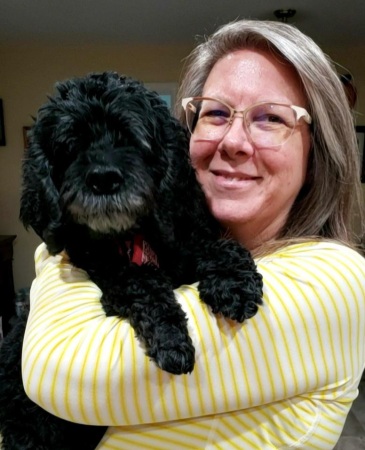
My favorite of all the apostles is John, “the disciple whom Jesus loved.” I love his Gospel, the three epistles that he wrote, and of course, Revelation.
There are a couple of things I love about John’s writings:
- He reminds his readers that he was an eyewitness to Jesus’ life, death, and resurrection.
- He clearly sets out the evidence for Jesus’ divinity.
- He focuses, particularly in the epistles, on the love of God.
- He reveals the power and purpose of the Holy Spirit in the lives of believers.
- He provides believers with an assurance of salvation.
It is this last point that I want to write about today.
Early in the history of the Christian faith, deceivers had come into the church who taught that one had to achieve sinless perfection to be saved. John wrote his first epistle to combat this heresy. The same type of heresy has crept into many legalistic denominations even today. By outwardly following the rules, such people claim to be without sin. But as John writes:
If we claim to be without sin, we deceive ourselves and the truth is not in us. If we confess our sins, he is faithful and just and will forgive us our sins and purify us from all unrighteousness. If we claim we have not sinned, we make him out to be a liar and his word is not in us.
1 John 1:8-10 (NIV).
John here provides assurance that the fact that the believer sometimes sins does not negate their salvation, because Jesus is faithful and forgives our sin. One of the definitions of assurance on Dictionary.com is “full confidence; freedom from doubt; certainty.” Throughout this epistle, John provides further assurance that those who trust in Jesus can be assured of their salvation even though they are not sinless and perfect.
The word “know” appears 42 times in this short epistle.
John wants to make sure believers know that God loves them and that they can rely on His promise of salvation. In each of the chapters of the epistle, John includes his assurance:
I am writing to you, dear children,
because your sins have been forgiven on account of his name.
I am writing to you, fathers,
because you know him who is from the beginning.
I am writing to you, young men,
because you have overcome the evil one.1 John 2:12-13 (NIV).
“Dear friends, if our hearts do not condemn us, we have confidence before God and receive from him anything we ask, because we keep his commands and do what pleases him. And this is his command: to believe in the name of his Son, Jesus Christ, and to love one another as he commanded us. The one who keeps God’s commands lives in him, and he in them. And this is how we know that he lives in us: We know it by the Spirit he gave us.”
1 John 3:21-24 (NIV).
“If anyone acknowledges that Jesus is the Son of God, God lives in them and they in God. And so we know and rely on the love God has for us.”
1 John 4:15-16 (NIV).
“I write these things to you who believe in the name of the Son of God so that you may know that you have eternal life. This is the confidence we have in approaching God: that if we ask anything according to his will, he hears us.”
1 John 5:13-14 (NIV).
None of us is perfect and completely sinless. If we were, we would not need a Savior. But we do need Him, and we thrive best knowing that He is faithful in His promise of salvation for those who believe.
John does not advocate living a life in which we sin ‘willy-nilly’ simply because we know we can be forgiven.
Now don’t get me wrong. Those who truly believe in Jesus, and trust in Him for salvation, will desire to keep God’s commands. His Spirit living in our hearts will help us to overcome the temptations of the world and to love as He has commanded.
You may be struggling today with worries that you are not good enough, or that God will give up on you and you will lose your salvation. But remember – God is faithful in His promises and He has promised eternal life to all who believe in Jesus and allow His love to live in them. He has not hidden the truth from us but has made Himself known through His Son and the witness of the apostles so that we can be assured of our place in His Kingdom. Your salvation is sure.









